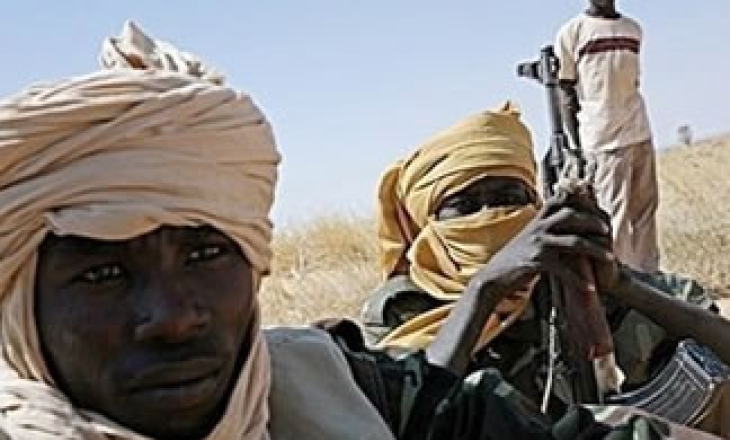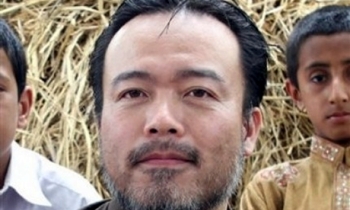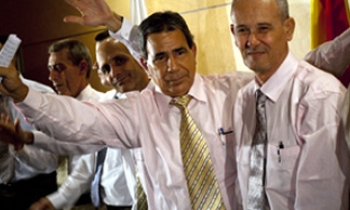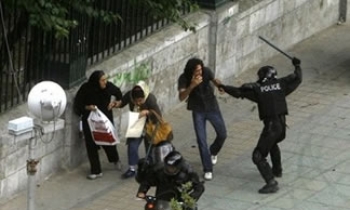Sudan has expelled a foreign journalist for reporting on the country's Darfur crisis and arms industry. Canadian-Egyptian reporter Heba Aly, who wrote for US news agency Bloomberg, Boston-based Christian Science Monitor newspaper and the United Nations news service IRIN, left the country last week.
She told colleagues that officers from Sudan's security service contacted her and ordered her to leave days after she made enquiries about a Khartoum-based arms manufacturer, according to a Reuters report. Sudan's security service released a statement to Reuters saying Aly had been "practicing activities outside her assignment which harm Sudan National Security". Action had also been taken against her for "her violation of passport and immigration regulations", it said.
More from the report: [Link]
Aly reported on clashes between government forces and rebel fighters in Sudan's Darfur region. Foreign journalists receive permits to visit the remote western region, but have faced restrictions on their movements once they arrive.
She told Reuters her press accreditation ran out in January and she had not been able to renew it, despite repeated applications to Sudan's media regulator, the National Press Council. "I kept on working because I just thought there was a procedural delay in my paperwork," she said.
The US embassy in Khartoum released a statement saying it "condemns this expulsion and continues to deplore infringements by the Government of Sudan upon freedom of the press and expression."
Freedom of the press is guaranteed in Sudan's constitution. But local journalists regularly complain about censorship, the detention of reporters and the seizure of newspaper print-runs.
The Monitor, too, had some details: [Link]
"It is pretty paradoxical, because Sudan is a country that does well in press freedoms compared with other African countries," says Ambroise Pierre, Africa desk officer for Reporters Without Borders in Paris. "But the whole climate within the country is one of censorship and self-censorship, where there are many subjects that just cannot be investigated."
Although he admits that any government has the right to decide who enters its borders, and who has the right to work inside its territory, Mr. Pierre says that Sudan makes it very difficult for journalists to play by the rules, to get accreditation, and to obtain work authorization.
"For the last six months, Heba Aly has been fighting to get accredited as a journalist, and she never succeeded," he says. "It's pretty difficult when you are like Heba Aly, trying to do your best as an honest journalist, you are like a hostage of the administration. The government can control who can work, where people can work, and what they can write."
Aly, a freelance reporter who writes for several news organizations including the Monitor and Bloomberg News, says she had been told by a Sudanese official at the time of her arrival that, as an Egyptian passport holder, she could live in Sudan without a residence permit. She says that she maintained her status as a member of the press – with a press card from the Sudanese Ministry of Information – throughout the bulk of her stay in Sudan, but despite months of waiting, she never received a work permit or accreditation as a foreign correspondent residing in Sudan.
While she admits that she worked for her final month, January, without accreditation, she says it was only after she started pursuing a story about Sudan's arms-manufacturing industry that she received a call from National Security agents requesting a meeting. At the meeting, the agents told her that she must leave Sudan by Monday.
"I was never given any written expulsion order, despite my repeated requests," says Aly, who had been detained twice before during her year in Sudan. "I was simply harassed, and was counselled by someone in government that if I did not leave I would be arrested. I was followed, intimidated into leaving the country, and escorted by national security all the way onto the tarmac to board the airplane. The reason they gave me was that I was asking about arms. But they told me the line they would use publicly was that I didn't have my work papers."
The government of Sudan continues to insist that Aly's expulsion is merely an immigration matter.










